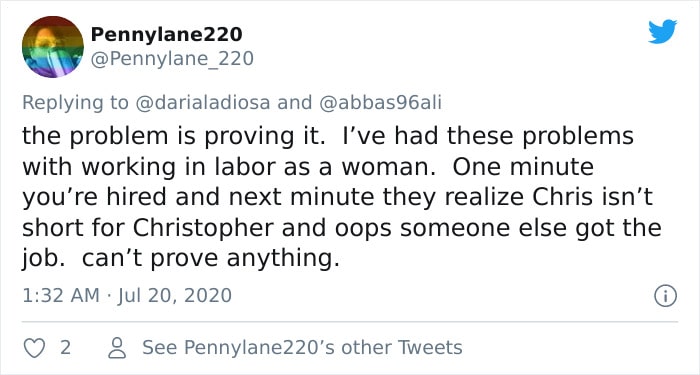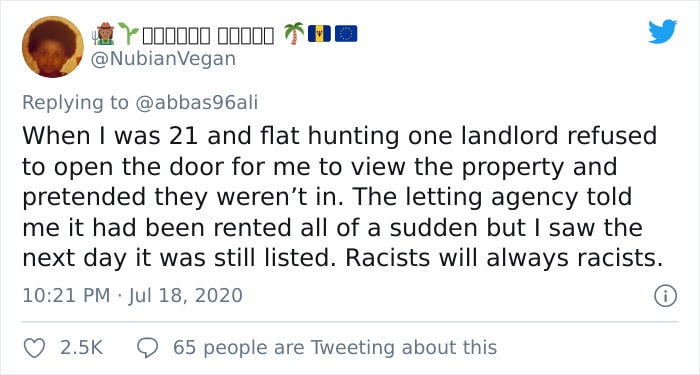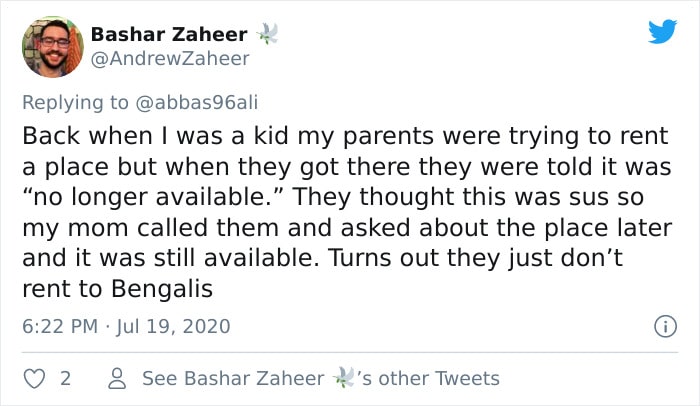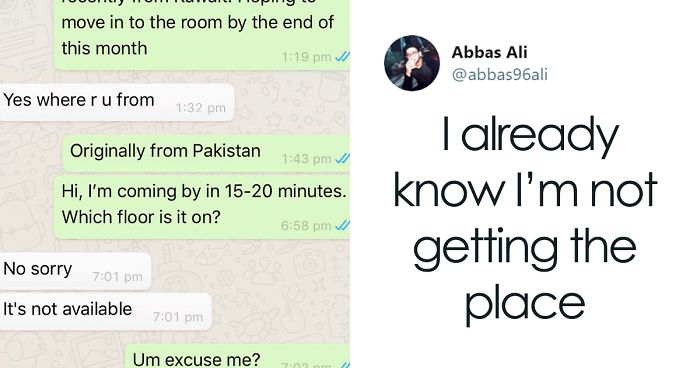Seeing the racial discrimination in the housing market saddens us. After all, 2018 was marked the 50th anniversary of the introduction of the Fair Housing Act. And if there is no limit to discrimination against tenants, we all are failing as humans.
A similar story has become viral on the Internet. Here, the landlord turns down the tenant after knowing he is originally from Pakistan. User, abbas96ali, recently had gone through this experience and the netizens are not happy.
Recently, this Twitter user named Abbas Ali shared screenshots of a conversation he had with a landlord who was offering a room for rent

“My heart sinks when landlords ask this question because I already know I’m not getting the place then.”
“I think with the BLM protests happening in the US right now we are getting closer to not only raising awareness about racial and ethnic profiling and discrimination but maybe even getting closer to taking institutional steps of reform/abolishment towards ending them,” said Abbas. “However, the rest of the world has yet to catch up and go through such realizations in each of their own countries and regions, recognizing their own type of institutionalized racism and discrimination.”
The beginning of this conversation seemed perfectly normal
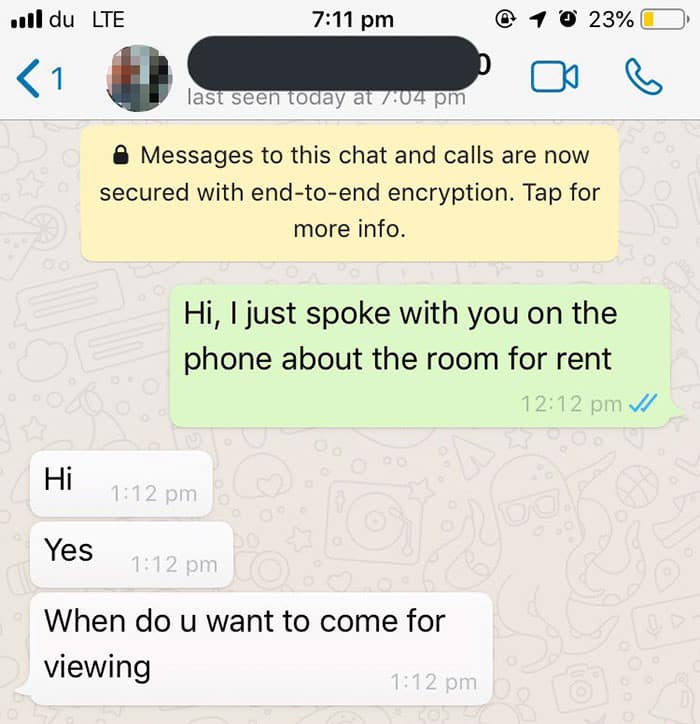
“Depending on which country you go to in the Middle East and what country you belong to/look like you’re from, you’ll have a different experience with such landlords or people. Some of these countries have much more blatant racism and discrimination than others do in this region, but there is a clear hierarchy in all of them. In the case of Dubai, generally, I feel like it’s a much less racist society or at least not as openly discriminatory, but I was warned by my colleagues since I first moved here to not tell them I’m Pakistani when looking for apartments and just to pretend I’m from Kuwait instead,” Abbas told us.
And then this happened
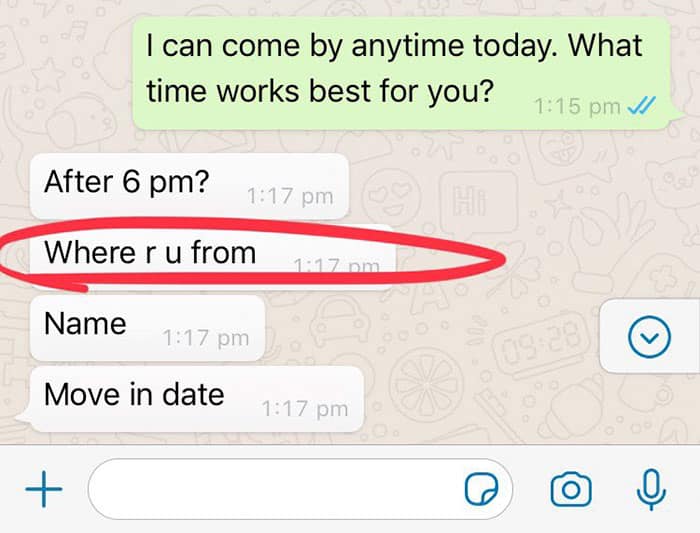
“I feel like such racist stereotypes and discrimination exists in this part of the world largely because of how institutionalized racism is in the governments and societies that certain people feel like it’s the norm. And this kind of treatment spans all levels of society too, from laws to culture too,” Abbas continued.
For some reason, the landlord felt the need to know the ethnicity of his potential tenant
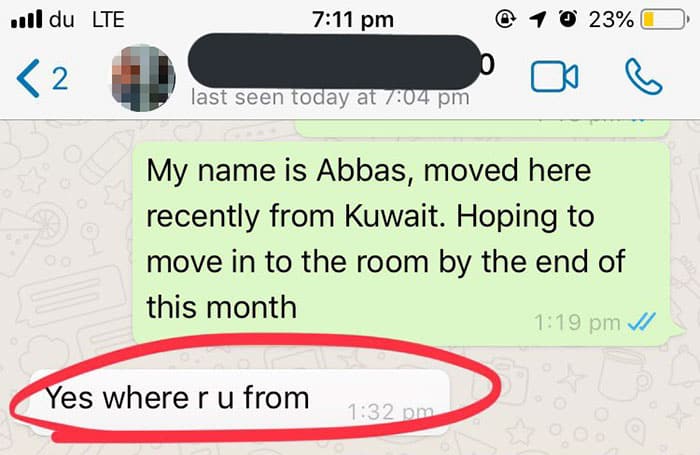
“And even in the case of me simply looking for an apartment using a popular website in Dubai where the site even allows the ad poster to specify a “preferred nationality” for their tenants. And in gulf citizen’s own cultures have deep-rooted racism toward their own nationals too, with microaggressions and discrimination towards people with darker skin color and people with mixed families or bloodlines, looking down upon or calling “impure” for nationals who have mixed parents or ancestral links to families in other non-Gulf countries,” said Abbas.
After finding out that the man was from Pakistan, the landlord suddenly decided that the room was no longer available
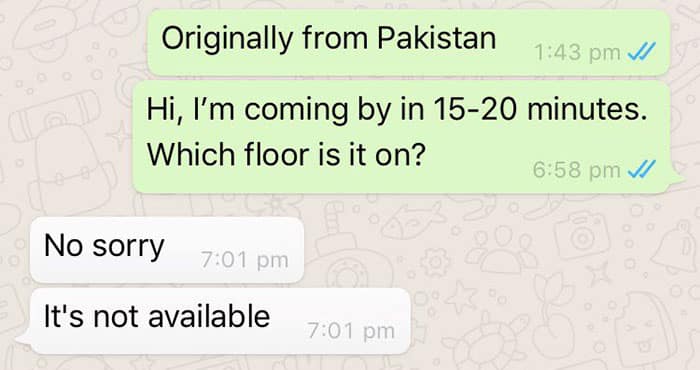
Abbas said this: “I think we as a society need to further raise awareness of the racism and discrimination being experienced in this region specifically to help locals and local governments realize the effects of their laws, policies, and societies on non-citizens. The discussions and conversations need to be made public and be driven by locals, as opposed to ex-pats because they could still face backlash, punishment, or deportation with the current laws and restrictions. And hopefully, this will lead to much needed institutional reform in these countries.”
Apparently, it was already rented… even though just a few hours earlier, the landlord had been inviting this man to come to see the place… yeah, right

“the pandemic has really accelerated the eventual tipping point for a lot of the ex-pats in this region with hundreds of thousands of people who have already left to return to their home countries in the past few months. They were always considered temporary guests rather than proper working citizens, so the ex-pat populations didn’t really receive much/any support from the government during this economic crisis when they started losing their jobs, and the jobs were the only thing keeping them here.”
Reading this conversation made many Twitter users extremely sad and pissed




Some were pointing out that according to the Fair Housing Act, such actions are absolutely illegal

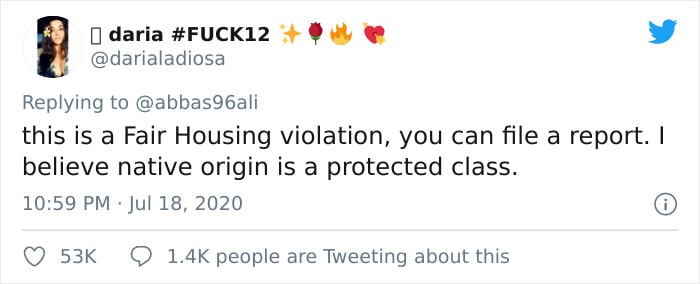
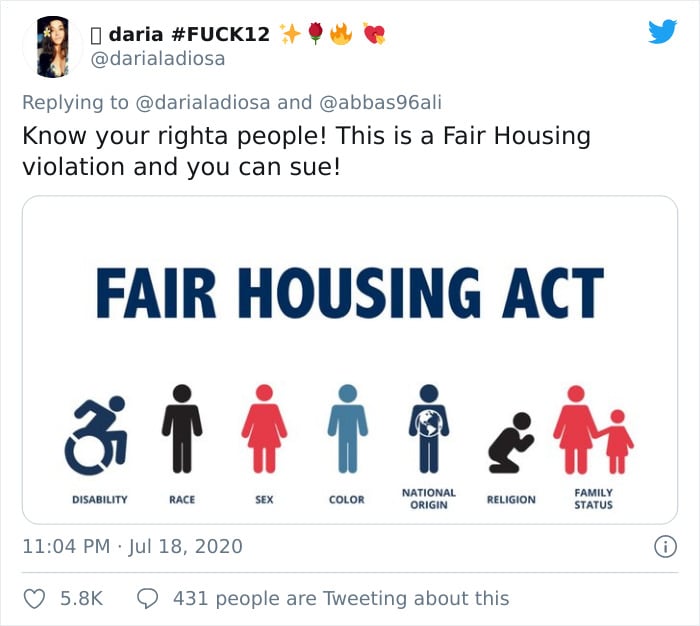
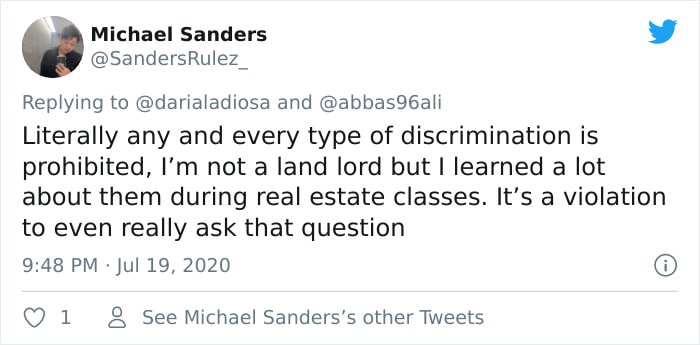
Unfortunately, the story took place not in the United States, but in Dubai, and the laws there are obviously different
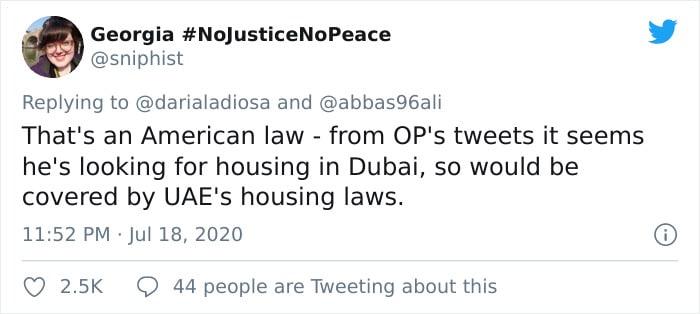

Finally, some internet users related to the story and decided to share their own similar experiences
